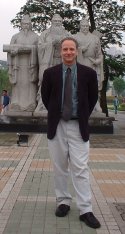Exporting Higher Education: Learner Expectations
The main variable which distinguishes the nature of service delivery between the different GATS modes is student autonomy. In Mode 1 services (
Cross Border Supply), there is no physically present teacher/authority figure to legitimize and provide detailed specifications for the experience. Students must be self-directed and determine when, where and how fast they want to study. Based on the initial expectation of teacher-centered learning, Mode 1 would not appear to be an attractive starting point for a Transnational program of study. In the five case studies in different transnational formats reviewed by
Ziguras (2001),
"students expected to be provided with large volumes of information and expected that recall of this information would be assessed in examinations, " and when their expectations were not met, they were resistant to change.
Learner expectations are a more significant factor in Transnational Education than in traditional Mode 2, (
Consumption Abroad). The latter is an immersion experience, and consciously chosen as such. In Transnational Education, however, the students never leave their home culture. Characterizing his experience as a distance educator,
Eveland (2001) emphasized the fact that,
"learners were explicitly not in my world but in theirs, with all its reinforcing cues. I didn’t have the power of the group to help me change their behavior."
And yet, a change of behavior may be precisely what the educational and political leadership of many South-East Asian nations has in mind. Educational Master Plans devised by the government of Singapore rely heavily on instructional technology to help bring about greater creativity and independent thinking by university students. Malaysian higher education policy features similar themes. The ability to work autonomously and behave proactively are seen as essential skills in the new networked, knowledge-based economy. Just as one's repertoire of learning styles can expand, so can broader cultural standards of behavior.
. . .

